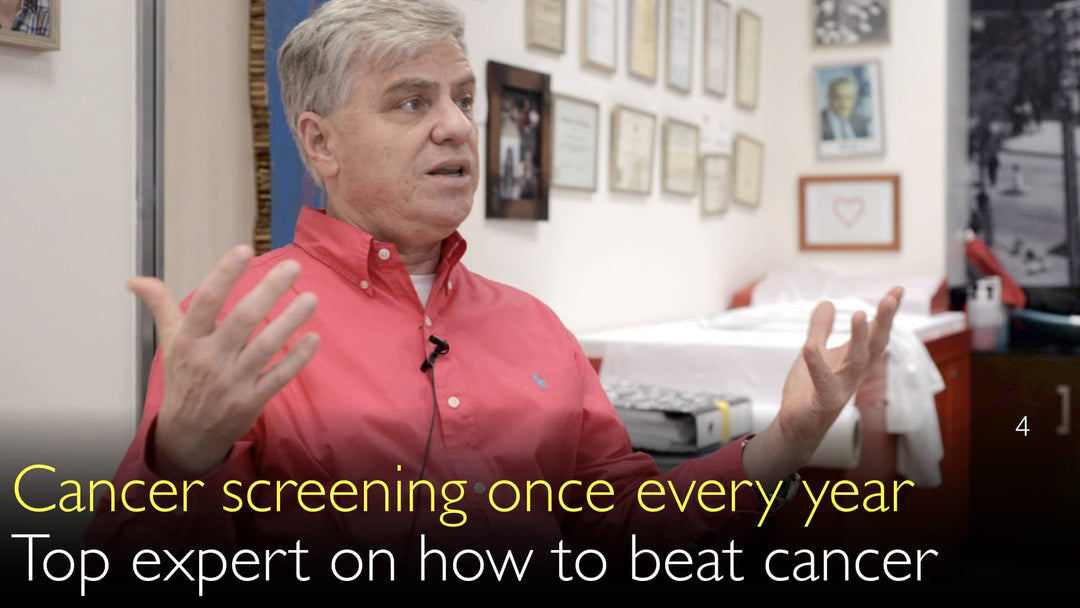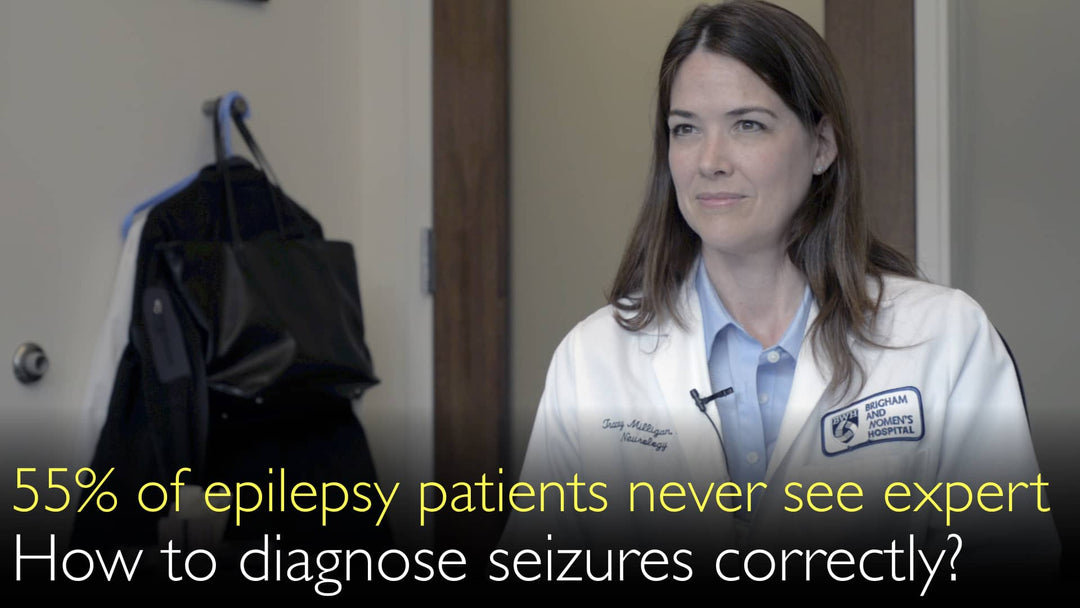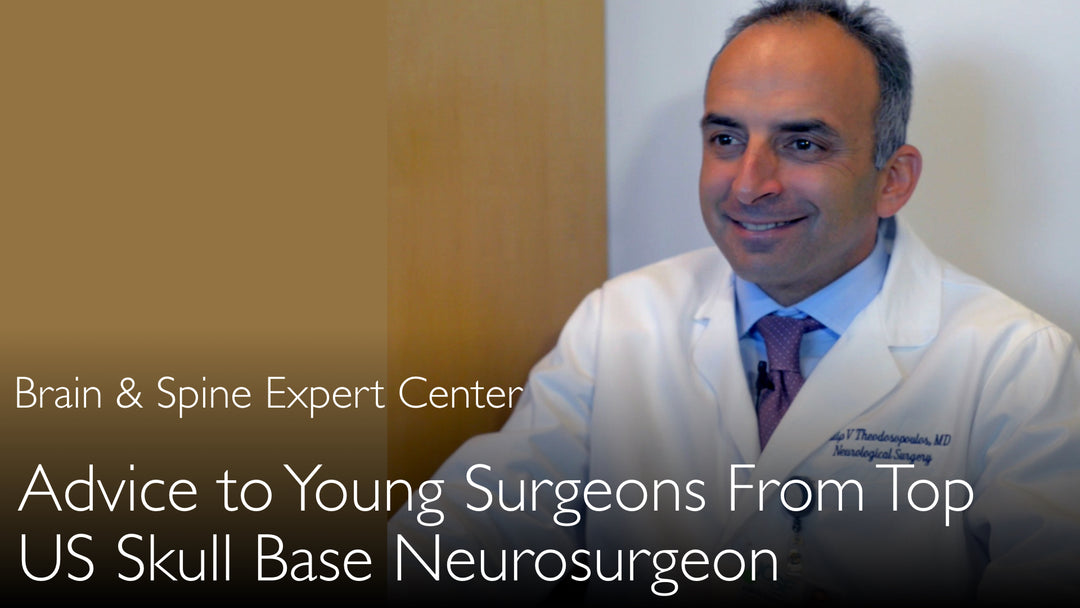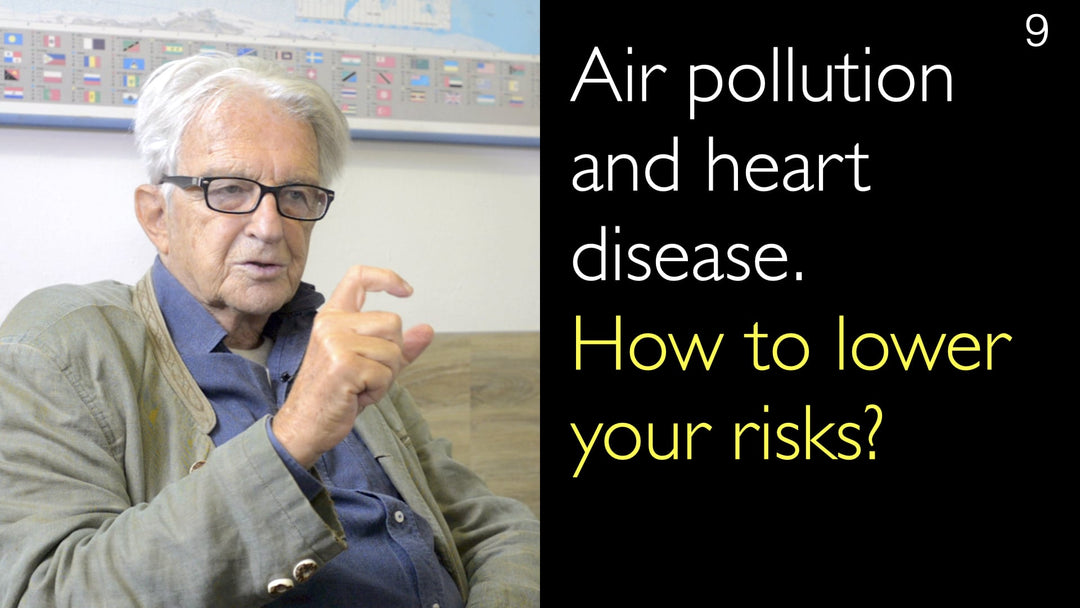Leading cancer prevention expert, Dr. Nadir Arber, MD, emphasizes the importance of annual cancer screening to detect and prevent cancer early. He compares regular health checkups to maintaining a new car, highlighting the necessity of early detection for effective cancer treatment. Dr. Arber's research at the Integrated Cancer Prevention Center shows that early cancer detection significantly reduces mortality rates. He advocates for evidence-based, personalized screening programs, which include genetic and family history assessments, to improve early diagnosis and treatment outcomes.
Annual Cancer Screening: Early Detection and Prevention Strategies
Jump To Section
- Importance of Annual Cancer Screening
- Integrated Cancer Prevention Center's Approach
- Benefits of Early Cancer Detection
- Personalized Screening Programs
- Evidence-Based Medicine in Cancer Prevention
- Global Cancer Statistics and Israel's Success
- Future of Cancer Screening
- Full Transcript
Importance of Annual Cancer Screening
Dr. Nadir Arber, MD, stresses the critical role of annual cancer screening in early detection and prevention. He likens regular health checkups to maintaining a new car, emphasizing that even when everything seems fine, regular checkups are essential to catch potential issues early. This proactive approach can lead to early intervention and significantly improve treatment outcomes.
Integrated Cancer Prevention Center's Approach
The Integrated Cancer Prevention Center, led by Dr. Arber, offers a unique "one-stop shop" for cancer prevention and detection. This center is the only one of its kind globally, providing comprehensive screening services within four hours. By coordinating various cancer tests, the center ensures efficient and effective early cancer detection, significantly reducing mortality rates among its patients.
Benefits of Early Cancer Detection
Dr. Nadir Arber, MD highlights the substantial benefits of early cancer detection, noting that finding cancer at an early stage can lead to a near 100% cure rate. Early detection allows for less invasive treatments and prevents cancer from progressing to more advanced stages. This approach is particularly effective for cancers like melanoma, where early removal can prevent metastasis.
Personalized Screening Programs
Dr. Arber advocates for personalized cancer screening programs that consider individual genetics and family history. Such tailored approaches ensure that high-yield diagnostic tests are used effectively, improving the chances of early detection. This personalized strategy contrasts with mass screening, which may not be cost-effective or necessary for all cancers.
Evidence-Based Medicine in Cancer Prevention
Dr. Nadir Arber, MD emphasizes the importance of evidence-based medicine in cancer prevention. He notes that not all screening tests are suitable for early cancer detection, and only those with proven efficacy should be used. This approach ensures that resources are used efficiently and that patients receive the most accurate and beneficial screenings.
Global Cancer Statistics and Israel's Success
Dr. Arber shares global cancer statistics, highlighting Israel's success in reducing cancer mortality rates. While the worldwide cancer mortality rate is around 60%, Israel's rate is significantly lower at 39%. At the Integrated Cancer Prevention Center, the mortality rate is even lower at 15%, demonstrating the effectiveness of their early detection and prevention strategies.
Future of Cancer Screening
Dr. Arber envisions a future where comprehensive cancer screening centers are more widely available. He advocates for the establishment of similar centers in other locations, emphasizing the importance of early detection and prevention in reducing cancer mortality. By adopting a holistic approach to cancer screening, healthcare systems can improve patient outcomes and save lives.
Full Transcript
Dr. Anton Titov, MD: You lead the integrated cancer prevention center. You also published a very interesting paper that screened 300 individuals for 11 different cancers. You actually found a high rate of tumors. It was a 2 to 3 times higher cancer rate than in the general population. There was a presence of both malignant and benign tumors. Could you please talk about that research? What are your views on having screening programs for cancer prevention?
Dr. Nadir Arber, MD: This was outlined in your cancer research article. This was our first cancer research paper on early cancer prevention. We had another paper where we summed up the result of the first 1,000 cancer screening patients. Now 20,000 patients attended this unique Integrated Cancer Prevention Center. That is actually the only one in the world that is doing a one-stop shop for cancer prevention and detection.
The best therapy for cancer is early detection and prevention. Sometimes there is a cancer, especially when there are symptoms. I do not say that there is nothing to do. But in most cancer cases, we can delay cancer progression. But a real cure usually is not achievable. If you find cancer at an early stage, you can cure cancer. You find a smaller melanoma early. You take it out in five minutes. That's it!
Sometimes you wait another few months. Then melanoma's depth is 0.1 millimeters and there are metastases everywhere. The key point is cancer early detection and cancer prevention. This is what we are doing here in my cancer prevention center. Within four hours, we have all the physicians and all the equipment and all the staff to diagnose a patient.
We have the cancer detection blood tests. Obviously, we are in a tertiary big excellent hospital. We are able to provide these services. People are coming and going into different cancer-testing stations. This is not simple. But we are able to computerize it. We direct patients to each cancer testing station in synchronous ways and in harmony. Then we are able to detect early cancer.
Surprisingly, we were able to find tumors in about 13% of our cancer screening program attendees. But almost all of the cancers were at a very early stage. I can tell you some statistics which are quite strong. It's not coming just from Israel, it's worldwide. Mortality from cancer is overall about 60% from all the millions of cancers found around the world.
In Israel, there are about 28,000 new cancer cases per year, and 11,000 people dying from cancer, which turns into about 39% cancer mortality. Maybe this is another testament to the good medicine in Israel. This statistic on cancer in Israel is better than average worldwide. In my cancer prevention center, the mortality from cancer is only 15%. This again gives us some kind of indication that what we're doing is good.
Sometimes you are able to detect cancer at an early stage. Then the cancer cure rate is close to 100%. I think cancer prevention is always difficult for people to understand. Because it's difficult to understand something that did not happen. We prevented an event that did not happen. It's like having a car. When you have a brand new car, you still need to do this annual checkup test. The car feels fine, it's brand new. But you still do check-up tests.
That is my advice to people. Treat yourself at least as good as you treat your car. Once a year you are entitled to have a check-up. And everything is fine. Don't feel that you wasted your time and money. It's worth it. It can give you a big return on your health investment. I think it's certainly true. But it's also important to do the right test for early cancer detection.
Because a lot of the generally available screening tests that are done during the checkups are not intended for the early diagnosis of heart disease and cancer. Or they don't work well in a very high percentage of cases. Knowing the personal genetics and studying the family history is probably the most important disease prevention strategy. We have to do some high-yield cancer diagnostic tests. Obviously, we only advocate evidence-based medicine.
There is a difference between screening and personal case findings. Thyroid cancer is a good example. It is not recommended to do screening for thyroid cancer of the entire population. But the patients come to me because they attended a cancer prevention center screening program. Then just in two minutes to palpate the thyroid gland. If it is needed, we do a thyroid ultrasound. It is an office procedure.
Mass screening is something completely different. It's not cost-effective. It is not worth bringing everyone for a thyroid ultrasound. But you came to a screening program for a different reason. Thyroid screening is easy to do. This integration does not exist usually. Because every cancer center has its own program for every cancer. But this is a mistake because it's impossible to predict where to screen.
The example with the car is relevant. You don't go to one place to check the engine. Then to a different place to check the electric wiring. Then to another place to check the tires. You do an entire car check at one place. It is usually a certified place. This is exactly what I'm aiming for and advocating to do for cancer screening. One stage, one-stop shop for cancer screening. It is in a good tertiary hospital. Then this is a way to go for early cancer detection. It is something that is possible to open in other places.
Thank you, that's very important. It’s very important for early cancer screening.







